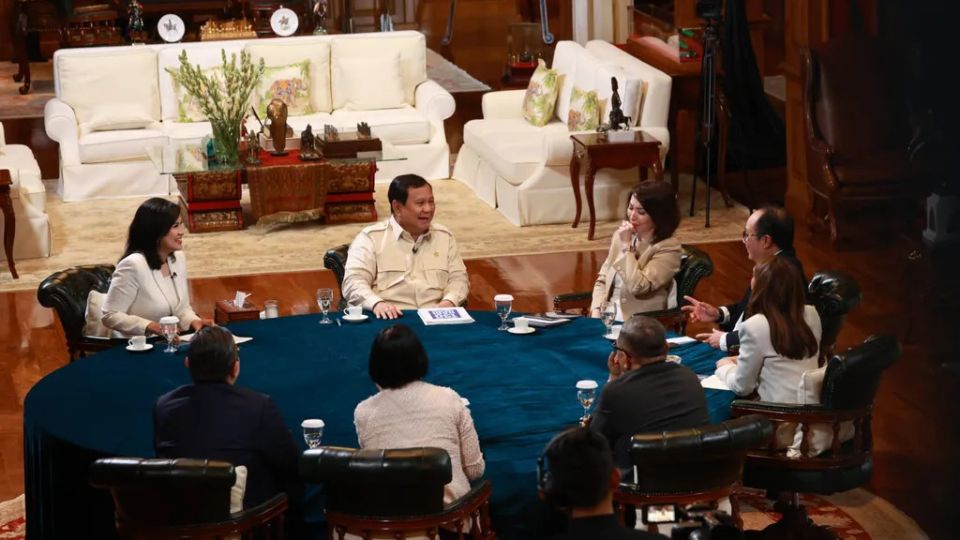April 10, 2025
JAKARTA – President Prabowo Subianto has dismissed mounting concerns over the potential return of military overreach in civilian affairs following the recent controversial revision to the 2024 Indonesian Military (TNI) Law that lacked meaningful public participation, while acknowledging that there should be more transparency on the deliberations of future bills.
The House of Representatives passed the law revision on March 20, or just around one month after receiving the President’s letter urging for the revision. The rushed deliberations were also marred by a series of unscheduled closed-door meetings between lawmakers and government officials.
Massive protests broke out nationwide shortly after the passage of the law, with protesters voicing concerns about the risk of reviving the military’s dwifungsi (dual function) doctrine imposed under former president Soeharto’s New Order regime.
The revised law extends sitting officers’ retirement age, increases the number of state institutions officers can be appointed to without having to retire early and also adds two new roles the armed forces have in non-combat operations.
Prabowo, a former Army general and defense minister, however, dismissed the public’s concern on the return of the military’s dwifungsi, referring to it as “nonsense”.
Read also: TNI Law revision crosses democratic red line
“The main point of the amendment is only to expand the retirement age for TNI commanders,” the President said over the weekend, arguing that it will help the institution progress. “How can an organization [develop] if the leaders change every year?”
He further claimed that the remaining two provisions were only “formalizing” existing regulations.
The President’s statement was made during a three-and-a-half-hour selected media interview at his private residence in Hambalang, Bogor Regency, West Java, last Sunday, the first of such an event since Prabowo assumed office in October last year.
Regarding the apparent lack of transparency in the TNI Law deliberations, Prabowo acknowledged that the process could have been more transparent. However, he also attributed public concerns about military overreach to the circulation of fake drafts.
“[The people] have their representatives at the House. There are hundreds of them and not all [are from parties] in my government […] If the public is unhappy with the deliberations, we can make them more transparent, but please don’t fabricate things and present them as the official draft.”
Read also: Protests break out as House passes TNI bill
Police law revision
With the TNI Law revision having sparked alarms among civil society groups and students, all eyes are now on a proposed revision to the 2002 Police Law, which is said to grant law enforcement officers greater authority without enhanced oversight.
Prabowo, during the same interview, said he will pay “special attention” and read the bill “paragraph by paragraph” in light of the public’s concern, believing the oversight mechanism has already been in place.
When pressed further if he believes the police should be given greater authority, the President said that a country could only function if its law enforcement forces have enough authority to keep the country safe.
“The police must be given enough authority to do [their] job. We need to judge this gradient wisely. If the police are now deemed to have enough authority to eradicate crime and smuggling, as well as to protect the community, I think that’s enough, why do we need to look for more?”
Usman Hamid, the executive director of rights group Amnesty International Indonesia, slammed Prabowo’s dismissive statements towards the public’s concerns of military overreach, saying that the answers the President gave during the interview were “misleading”.
“[Prabowo’s statements] are just a pretext to avoid accountability, escape justice, as well as mislead and deceive the public, as if there is no problem with the Military Law revision. I hope the editors-in-chief [interviewing Prabowo] can remain critical,” he said on Wednesday.
Usman went on to say that, despite Prabowo’s promise for a more transparent lawmaking process, the public and civil society should continue to remain vigilant.
“We can’t hold on to his statement. [More transparency] is something the government always promises but never fulfills,” he added.


